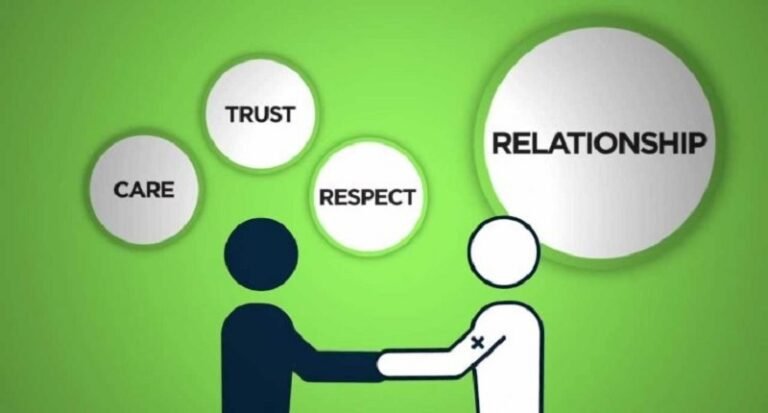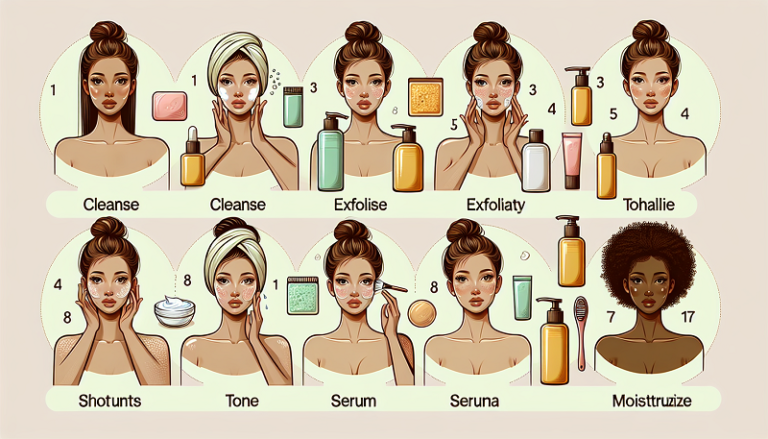Thriving Every Day: Creating a Supportive Daily Routine for Mental Health

Establishing Healthy Daily Routines
Getting into the groove of a solid routine is like nailing the secret sauce for sanity, especially for those young guns juggling work and life’s circus of surprises. Let’s cut the fancy talk and dive into why daily habits pack a punch for your brain health and how National Mental Health Awareness Month shines a light on this.
Importance of Daily Habits
Who would’ve thought that your everyday doings could be the unsung heroes for a sound mind? Yeah, we’re talking about simple habits that keep your world from spinning out of control. They give you a game plan, lowering stress levels and making you mentally tougher. Based on findings from MindSpot, five simple daily tweaks can give a serious boost to your mental mojo.
Here’s what’s in it for you if you jump on the good-habit train:
- Boosts Rhythm: A set routine is your ticket to mastering time. You’ll carve out moments for me-time and self-care.
- Chills Out Anxiety: When life’s pretty mapped out, anxiety takes a back seat.
- Turns on the Rocket Boosters: A well-oiled daily schedule supercharges what you get done, helping tick off everything from personal growth to work wins.
Think daily exercise, catching z’s like a champ, chowing down on good food, and hanging out with your homies. If you’re stuck for ideas, check our daily routine examples and daily routine checklist.
National Mental Health Awareness Month
May is all about throwing the spotlight on mental health. National Mental Health Awareness Month beckons with opportunities to open up about brain health and get in on events doing just that. As pointed out by Reid Health, this month is a nudge to:
- Open the Floor: Make it okay to talk about mental stuff without a flinch.
- Show Off Some Tools: Serve up ways to manage mental health, like mindfulness magic.
- Power Up the People Connection: Shout out to how important having your people around is for your mental vibe.
May’s the perfect excuse for young folk to peek at their mental health playbook and switch things up if needed. Mindfulness-Based Stress Reduction (MBSR) and Mindfulness-Based Cognitive Therapy (MBCT) have shown promise in calming nerves and lifting moods (NCBI). For ideas on mindfulness, head to our page on Mindfulness Practices for Mental Wellbeing.
| Initiative | What It’s About |
|---|---|
| Speaking Up | Spaces to chat about mental health stuff |
| Tool Time | Unveiling mental management techniques |
| Community Vibes | Highlighting the power of social ties |
Fold these gems into your daily life and you’re looking at a lifestyle that fits like a glove, good for your noggin and your body. For more ways to ace your daily gig, have a gander at daily routines for success.
Physical Activity for Mental Health
We all know a bit of moving around can work wonders for our minds. Adding some exercise to your day isn’t just about getting fit; it’s a mental pep talk. Let’s dive into how breaking a sweat can lift your spirits and calm those stress monsters.
Exercise as a Mood Booster
You’ve probably heard it before, but exercise is a top-notch mood shifter. Think of it as a free remedy for feeling blue, jittery, or even scatterbrained. Whether you’re zipping around the block or showing those weights who’s boss, the body unleashes little helpers like endorphins and serotonin—your brain’s built-in cheerleaders.
| Benefit | How It Helps |
|---|---|
| Kicks Depression to the Curb | Endorphins act like natural mood boosters, giving you a lift. |
| Waves Bye-Bye to Anxiety | Calms the mind by releasing stress-reducing chemicals. |
| Sharpens Your Mind | Boosts memory and clarity, firing up those brain cells. |
| Aids Sleep | Improves shut-eye, which is vital for a happy mind. |
If you’re curious about setting up the perfect daily groove, peek at our daily routine examples.
Impact of Movement on Stress
Moving around is like giving your brain a reset button. It helps sweep away stress by pumping out endorphins and encouraging your muscles to chill. This magic duo helps squash the stress merry-go-round between your noggin and your body. Regular activity is a nifty trick for nixing anxiety, leaving you energized and feeling pretty good about life.
Even if you don’t have lots of time, a little bit of movement can make a big difference. For more ways to sneak exercise into your everyday life, check out our daily routine checklist.
| Movement Type | Stress Relief |
|---|---|
| Mid-Intensity Workouts | Cuts down on cortisol—the stress hormone—to help you chill. |
| Heart-Pumping Aerobics | Boosts heart health, bringing anxiety down a notch. |
| Yoga and Stretchy Stuff | Encourages relaxation and present-moment mojo. |
For those aiming to skyrocket their daily success, exercise is a no-brainer. Take a gander at our guides on daily routines for success and balance out your day.
By understanding how movement can zap stress and brighten your mood, young go-getters can shape a mental health-friendly daily routine for mental health. You’ll find yourself feeling better and getting stuff done with ease.
The Role of Sleep in Mental Wellness
Getting enough shut-eye ain’t just about avoiding bags under your eyes—it’s essential for keeping your mind sharp and your mood sunny. Sleep is a vital part of keeping your mental health in check, doing more for you than just refreshing your body.
Effects of Sleep on Mental Health
A regular sleep schedule can do wonders for your mind. The National Heart, Lung, and Blood Institute notes that skimping on sleep can mess with your mood, making you feel grouchy, impulsive, or sad. It can even bring on depression, mess with your motivation, and make it tough to focus. All this can turn social events and day-to-day tasks into major challenges.
Lack of sleep doesn’t just stop there—it can be a slippery slope to more serious mental health problems, like depression and thoughts of self-harm, affecting how you make choices and handle emotions. On the flip side, catching enough z’s can boost your learning, attention, creativity, and overall brain juice. People snoozing less than 6 hours a night often report feeling more stressed than those with a longer night’s rest.
Recommended Sleep Duration
Your perfect night’s sleep can change depending on how many candles you’ve burned. The American Academy of Sleep Medicine has some pointers (Columbia Psychiatry News):
| Age Group | Recommended Sleep Duration |
|---|---|
| Adults | 7-9 hours |
| Teens | 8-10 hours |
| Older Adults | 7-8 hours |
Tuck these sleep tips into your daily routines for success to help boost your mental well-being. Keep your sleep on a steady schedule, steer clear of caffeine and screens before bed, and make your bedroom a cozy cave to get the most out of your rest.
Looking to set up a routine that supports mental health? Peek at our daily routine examples and daily routine checklist for more inspiration.
Social Connections and Mental Wellbeing
Having solid social connections is like having your own personal cheering squad. It’s not just good for your heart but also for your mind. Hanging out with friends and family, whether in real life or through sensible social media use, can totally give your mental health a boost. Want to jazz up your daily mental health routine? Keep reading.
Strengthening Relationships
Making and keeping friends isn’t just for kids; it’s like a mental health magic trick. Whether you’re swapping stories or sharing laughs, real-life interactions can turn acquaintances into BFFs and lower stress while bringing more positivity into your world. A study in 2018 revealed that catching up face-to-face is a winning formula for building closeness (Healthline).
How to make your social life sparkle:
- Set up regular hangouts or video calls with your crew.
- Dive into clubs or groups that match your hobbies—instant new pals.
- Be a good listener and show it; people love when you tune in.
- Celebrate the big wins and little victories with your nearest and dearest.
Giving a little extra TLC to friendships can be stitched right into your everyday schedule, turning it into a powerhouse for better mental health.
Reducing Social Media Usage
Social media is like that frenemy who keeps you connected but can also mess with your mind. Too much scrolling might make you feel lousy, anxious, or even down in the dumps. Snipping your social media time can do wonders for your mood.
Tips to cut back on screen time:
- Decide when you’re scrolling and stick to it.
- Silence notifications; you don’t need the constant chirping.
- Hit unfollow or mute on accounts that bring you down.
- Get out and do something fun offline, like read or sprint around outside.
Being mindful of your digital habits as part of a daily routine planner can unlock more time for good stuff, leading to better vibes.
When you mix in a bit of exercise, better sleep, good food, and mindfulness, you end up with a balanced daily routine that’s a surefire way to keep your mind in tip-top shape.
Nutrition and Mental Health
Mood-Boosting Nutrients
Ever feel like your brain just needs a little pick-me-up? Turns out, what you eat can do wonders for your mood. There are some superstar nutrients that help keep your spirits high and your mind in top shape. Let’s munch on this:
| Nutrient | Where to Find It | Why It Matters |
|---|---|---|
| Omega-3 Fatty Acids | Fatty fish like salmon and mackerel, flaxseeds, walnuts | Keeps your brain happy and reduces the bad, swollen stuff. |
| B Vitamins | Eggs, beans, seeds, leafy greens | Supports mood swings and brain jumpstarts. |
| Vitamin D | Sunshine, fortified milk, fatty fish | Can keep the blues away and cheer you up. |
| Magnesium | Avocado, nuts, seeds, dark chocolate | Soothes nerves and helps you stay chill. |
Stacking your plate with these can be a game-changer for your headspace. Drink plenty of water, because a thirsty brain ain’t a happy brain. Keep a check on stuff like booze, caffeine, white bread, and sugar—they might be raining on your mental parade.
Impact of Diet on Mental Wellness
The secret sauce between what we eat and how we feel isn’t just a hunch. Studies keep backing up the idea that good eats equal good vibes (National Center for Biotechnology Information).
What’s going on in your gut can truly make or break your mood, so team up with your belly. The healthier we eat, the better we are at tackling what life throws at us. Happy tummy, happy you (McLean Hospital).
Not everybody gets a fair shake when it comes to food—money strains and food deserts are real. These hurdles can cause added stress and spiral into mental health struggles. Over 30% of hospital patients in America deal with bad nutrition, which is anything but helpful (McLean Hospital).
To dodge such pitfalls, take a leaf out of the book of traditional foods. The Mediterranean, Costa Rican, West African, Nordic, and Okinawan ways are loaded with real foods, beans, and good fats while steering clear of junk, showing how smart eating can boost your mood and well-being (McLean Hospital).
Making these food picks part of your daily routine planner might just be what your mental health ordered. Snag more ideas on building a rock-solid daily routine by checking out our tips on daily routines for success and handy daily routine checklist tricks.
Mindfulness Practices for Mental Wellbeing
When life throws its usual curveballs, adding a splash of mindfulness into your daily routine can work wonders for your mental health. We’re talking about keeping your brain in check, dealing with emotions like a pro, and just feeling better overall.
Definition of Mindfulness
Mindfulness isn’t just a buzzword; it’s about chilling in the now without letting your mind race all over the place. It’s about noticing everything around you—good, bad, or ugly—without jumping to conclusions. It’s like hitting the pause button and just being there for what life throws your way.
Mindfulness isn’t picky. It works its way nicely into your daily checklist for living a life that’s not just fast-paced but also fulfilling. It’s about being present and accepting things as they come, with no judgment allowed.
Mindfulness Benefits for Mental Health
Squeezing some mindfulness into your everyday hustle comes loaded with perks:
- Chilling Out Anxiety and Depression: Programs like Mindfulness-Based Stress Reduction (MBSR) and Mindfulness-Based Cognitive Therapy (MBCT) rank high in tackling anxiety and depression, standing shoulder-to-shoulder with those long-term therapy options (NCBI).
- Better at Feeling Stuff: A little mindfulness here and there can help you better navigate your emotions and get cozy with that part of you that just wants to be kind to you.
- Focus and Mental Sharpness: Mindfulness helps keep your brain on task and your thoughts clear. In a go-go-go world, who doesn’t want that sharper focus? Perfect for those with big career dreams on their vision boards, check our success tips.
Here’s a quick glance at what mindfulness can do for your noggin:
| Benefit | What It Does |
|---|---|
| Chilling Out Anxiety and Depression | Tackles symptoms as well as traditional therapies |
| Better at Feeling Stuff | Helps in managing emotions and kindness to self |
| Focus and Mental Sharpness | Keeps brain sharp, cool in tight spots |
If juggling work, life, and everything else got you in a twist, adding mindfulness can turn things around. Trying out mindful activities in your daily plan can make balancing the chaos a whole lot easier. Regular mindfulness might just be a secret weapon to upleveling your mental game.
Establishing a Balanced Routine
Putting together a balanced daily routine is like building a sturdy bridge to mental peace. It’s the go-to recipe for young pros aiming to juggle life’s circus without dropping any balls.
Incorporating Healthy Habits
Healthy habits aren’t just nice-to-haves; they’re your backstage passes to mental wellness nirvana. Adding these mind-friendly rituals into your lineup can transform every day from mediocre to magnificent.
- Physical Activity: Busting a move isn’t just for gym rats. It’s about lighting up your mental scoreboard. Slogging through a jog, striking a yoga pose, or just flailing about in a dance class can zap away stress and power-up mood levels like a pro gamer.
| Activity | Mental Health Perk |
|---|---|
| Walking | Kicks anxiety to the curb, cheers up mood |
| Yoga | Sinks you into relaxation mode, sharpens focus |
| Running | Battles the blues, cranks up energy |
- Nutrition: Your gut is like mental health’s unsung hero. It deserves a first-class menu of fruits, veggies, and lean meats. Nurture it right, and it’ll have your back when stress tries to crash your party.
- Sleep: If excessive viewing of Netflix and TikTok is disrupting your sleep, it is advisable to set them aside in favor of a restful night. Aim for 7-9 hours—it’s like a secret passcode for a day filled with less ‘meh’ and more ‘aha’.
Building a Sustainable Lifestyle
A sustainable lifestyle isn’t about living like a monk. It’s finding routines that feel less like chores, and more like your comfy slippers—reliably there, not suffocating.
- Mindfulness Practices: Mindfulness isn’t just a buzzword; it’s a life vest in the stormy seas of stress. It’s tuning into the present like you’d listen to your old vinyl record—appreciation without judgment.
- Social Connections: Humans are meant to connect, not just with Wi-Fi but with each other. Less screen time, more people time. It’s about engaging in real talks instead of liking some random cat pic.
| Strategy | High-five for Mental Health |
|---|---|
| Mindfulness Meditation | Zaps stress, laser-focuses mind |
| Regular Face-Time | Adds to your support squad, lifts spirits |
| Cutting Social Scrolling | Lessens stress, bets on better sleep |
- Consistency and Flexibility: Balancing consistency with a splash of flexibility is like maintaining a tightrope act. Stick to your schedule but give yourself some wiggle room for life’s unplanned detours. Keep a daily routine checklist handy, but don’t beat yourself up for occasionally freelancing from the rule book.
Want more scoop? Check out our guides on creating a daily routine planner and routines that’ll help you crush life like a rockstar at daily routines for success. They’re your cheat sheets to blending personal needs with mental health gold.
Research-Based Methods for Mental Health
Setting up a daily rhythm to nurture mental health means embracing techniques that science says work for keeping our minds and feelings in check. Two big players in this field are mindfulness practices and versatile wellness strategies.
Mindfulness Practice
Mindfulness stuff, like Mindfulness-Based Stress Reduction (MBSR) and Mindfulness-Based Cognitive Therapy (MBCT), has been shown to seriously cut down on worries and blues. These approaches push living in the moment and getting comfy with your thoughts and feelings without rushing to judge them.
Popular Mindfulness Practices:
- Mindfulness-Based Stress Reduction (MBSR): This eight-week gig includes meditation, paying attention to your body, and yoga to tackle stress head-on.
- Mindfulness-Based Cognitive Therapy (MBCT): Mashes up old-school cognitive behavioral therapy with mindfulness flair to stop depression from making a comeback.
| Approach | Timeframe | Main Objective | Perks |
|---|---|---|---|
| MBSR | 8 weeks | Stress management via mindfulness | Cuts down on anxiety and stress |
| MBCT | 8 weeks | Cognitive therapy meets mindfulness | Decreases chances of depression returning |
Taking mindfulness to heart can be a real game changer in setting up a supportive daily routine. For tips on mixing mindfulness into your everyday grind, check out our bit on wellness strategies.
Proven Tips for Mental Wellness
A day-to-day routine that backs your mental well-being ties together a bunch of actions that give your overall health a boost. Here are a few science-backed suggestions:
1. Get Moving Regularly:
Physical activity is well-known for cranking up the good vibes and kicking stress to the curb. Dive into stuff like walking, jogging, or yoga to spruce up your mental state. For cool tips on using exercise to boost your mood, peek at our section on getting active for mental health.
2. Decent Sleep:
Aiming for the golden 7-9 hours of sleep each night is key for mental harmony. Quality sleep helps smooth out emotions and clears your headspace.
3. Balanced Diet:
Chowing down on foods packed with mood-enhancing goodies like omega-3s, vitamins, and minerals can do wonders for your mental health. Check out more about eating right and feeling good in our piece on nutrition and mental health.
4. Social Ties:
Building and keeping solid relationships are your ticket to emotional support and fending off loneliness. Cutting back on social media and boosting face-to-face chats can tighten those bonds.
5. Mindfulness Exercises:
Bringing in mindfulness moves like meditation, deep breathing, and yoga can help tame stress and lift your spirits. Learn more about what mindfulness can do for you here.
6. Organized Daily Structure:
Crafting a daily schedule that balances work, play, and self-care can give you a grounding sense of purpose. Use a daily routine planner to keep things on track.
Mixing these well-researched ideas into your daily grind can hand young professionals a boost in juggling work and life while keeping well-being intact. For practical examples and handy checklists to kick things off, head to our sections on routine examples and routine checklists.






